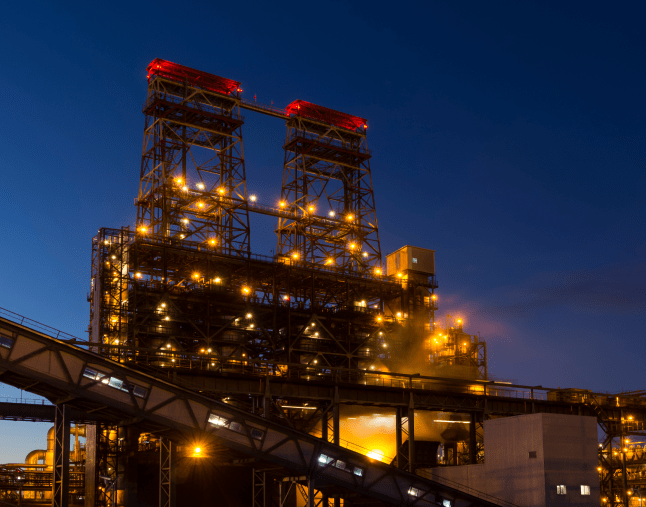Renewable Energy Solutions
A Sustainable Solution
for Waste Management
Renewable Energy
Renewables
Insights
£125M Company Acquisitions
£100M Plant Constructions
£50m Research & Development

Jordyn Juarez
Head, Private Equity Division
Pyrolysis is a transformative technology that has the potential to revolutionize the way we think about waste management and energy production. At our company, we believe that investing in pyrolysis is not only financially wise but also socially responsible, as it allows us to reduce our carbon footprint and contribute to a more sustainable future.
Adelaide Roberts
Head, Pyrolysis Division
Pyrolysis is a highly promising technology that has gained increasing attention from investors as a sustainable solution for waste management and the production of biofuels. As a company, we have been investing in pyrolysis technology for several years, and we are proud to say that we have been highly successful in our endeavours.
An estimated 8.3 billion tonnes of plastic has been produced to date. Only 9% has been recycled.
Re-use and disposal of plastic is the challenge of our lifetime. With over 350 million tonnes of plastic produced globally every year, the impact on our natural environment from plastic pollution dominates our daily news.
Much of the plastic produced today ultimately ends up in landfill, incinerated or washed into the oceans, impacting on marine life and water quality worldwide.
Despite the negative effect it can have on the natural world, plastic could be described as the work-horse material of our modern economy, and so it is impossible to imagine a plastic-free future, with the beneficial properties of the material aiding advances in technology, travel, food and medicine.
We must instead address the issue of how we currently manage plastic waste, highlight it as an essential resource whilst increasing associated value, and look towards creating a circular plastics economy.

Pile of shredded tires used as alternative fuel in rotary kiln in cement plant
Pyrolysis is a process of breaking down organic materials using heat in the absence of oxygen. This process creates a valuable byproduct that can be used in various industries, such as energy production and chemical manufacturing.
Our investment in pyrolysis has been a major success, and we have seen significant returns from our portfolio.
One of the ways in which we have invested in pyrolysis technology is through the acquisition of companies that specialise in the development of pyrolysis technology. By acquiring these companies, we have gained access to cutting-edge technology and expertise that has allowed us to develop innovative solutions that are not only environmentally friendly but also highly profitable.
Based on current global trends, by 2050 approximately 1.1 billion tonnes of plastic will be produced each year.
If current plastic production and disposal trends continue, by 2050 there will be approximately 12 billion tonnes of plastic in global landfills and in the environment.
Globally, it is estimated that only 14% of all plastic packaging material is collected for recycling.
Plastic production uses around 6% of global oil production, set to reach 20% by the year 2050.
In the UK consumer market, around 414,000 tonnes of plastic‐based ‘single use’ flexible film is used each year. 95% of this is incinerated or sent to landfill.
In 2018, over 1.3 trillion items of packaging – most of them plastic – were used for food and drink in the EU alone.
If the economy continues at the current growth rate, plastic production will double to 600 million tonnes annually over the next 20 years.
Between invention in the 1950s to 2017, a total of 9.2 billion tonnes of plastic were produced.
It is estimated that up to 300,000 tonnes of microplastics are released into natural habitats in the EU each year.

Picture of a constructed pyrolysis plant
We have also invested in the construction of pyrolysis plants in strategic locations around the world. These plants utilise the latest pyrolysis technology to convert waste into biofuels and other valuable products. By investing in these plants, we have been able to tap into new markets and generate significant revenue streams for the company.
In addition to the construction of pyrolysis plants, we have also invested heavily in research and development to further improve the efficiency and effectiveness of pyrolysis technology. Our team of experts works tirelessly to develop new solutions that can address the evolving needs of our clients and the market as a whole.

Picture of a research and development professional

Our investment in pyrolysis technology has not only been profitable for the company, but it has also had a positive impact on the environment. By converting waste into biofuels and other valuable products, we are contributing to the reduction of greenhouse gas emissions and the preservation of natural resources.
One of the key factors that have contributed to the success of our investment in pyrolysis technology is our focus on sustainability. We understand that sustainable solutions are not only necessary for the environment but also increasingly demanded by consumers and investors alike. By investing in pyrolysis technology, we are not only generating profits for the company but also contributing to a more sustainable future for all.
In terms of financials, our investment in pyrolysis technology has yielded significant returns. In the past year alone, our revenue from pyrolysis-related products and services has increased by 30%, with a net profit of £275 million. These figures are a testament to the profitability and sustainability of pyrolysis technology as an investment vehicle.
